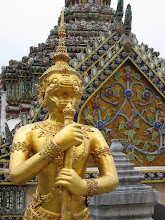Sati Sutta summary
Vamsapala
5301201125

The
term sati has two meanings which, although apparently opposed are actually
related: awareness, attention, mindfulness, fact of being clearly conscious. It
is one of the seven bojjhaṅgas, said to be the most important because the other
six are to be developed along with it. The standard defintion of sammā·sati. Sati is one of the five spiritual indriyas
and the five balas.
These
two meanings are related in the sense that an awareness supported by the
collectedness of concentration is a necessary condition to get proper
perception and understanding of what is happening in the present moment, which
enables an easy recollection at a later time of what precisely was happening,
of what was said, what was done at a prior moment, even a long time before. In
one case sati is defined as per what is happening in the present moment, and in
the other as per the qualities that develop in the bhikkhu when he has been
endowed with this awareness of the present moment for a long time.
The monks in the Dhamma and Vinaya, are contemplating body
in the body, contemplating feeling in the feeling, contemplating mind in the
mind and contemplating mind-objects in the mind-objects; should eradicate
abhijjhã(convetousness) domanassa (painful mental feeling) in the world. This
is called “The monks remain sati”.
the Buddha said Monks, whoever develops & pursues
mindfulness immersed in the body encompasses whatever skillful qualities are on
the side of clear knowing. Just as whoever pervades the great ocean with his
awareness encompasses whatever rivulets flow down into the ocean, in the same
way, whoever develops & pursues mindfulness immersed in the body
encompasses whatever skillful qualities are on the side of clear knowing.
The monks in the Dhamma and Vinaya, are circumspect of
stepping forward and stepping backward, circumspect of looking left and right,
circumspect of folding and stretching, circumspect of wearing the outer robe and
robes as well as taking alms-bowl, circumspect of eating, drinking and tasting,
circumspect of defecating and urinating, circumspect of walking, standing,
sitting, sleeping, waking up, talking and being still. This is called “The monks
are remaining circumspection.






 11:12 PM
11:12 PM
 mr.vam
mr.vam

 Posted in:
Posted in:  Translate
Translate
0 comments:
Post a Comment